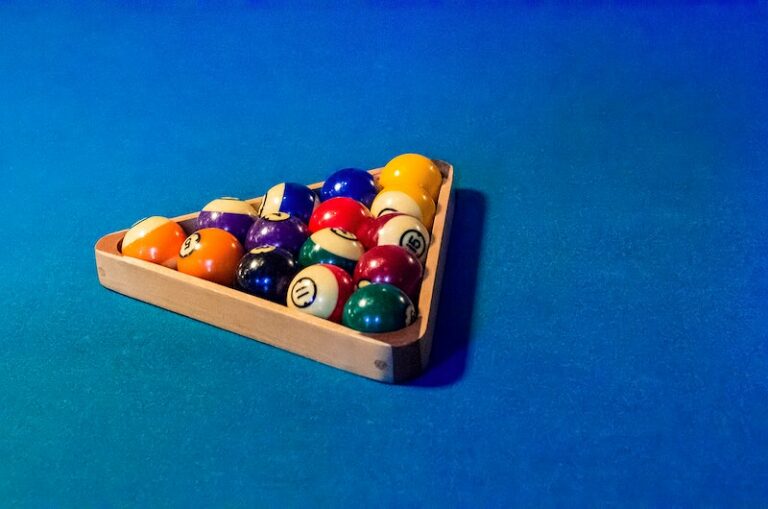General Rules of Muggle Quidditch
Imagine yourself transported to a field where brooms aren't just for sweeping, but for an exhilarating game of muggle quidditch. As you step onto the pitch, the rules may seem perplexing at first glance. However, understanding the intricacies of game setup, scoring, and the unique role of the Seeker is significant. But what about the mysterious Snitch and the dynamic interplay between Bludgers and Beaters? Stay tuned to unravel the complexities of penalties, fair play regulations, and the ultimate quest for victory in this magical sport.
Game Setup and Team Composition
When setting up a game of Muggle Quidditch and organizing your team, it is essential to understand the specific rules and positions involved. Team strategy plays a vital role in Muggle Quidditch, where each player position contributes uniquely to the overall gameplay. To excel in this magical sport, you must grasp the intricacies of player positions and how they interplay within your team's strategy.
First and foremost, let's explore the various player positions in Muggle Quidditch. The team consists of three chasers, whose primary goal is to score points by throwing the quaffle through the opposing team's hoops. In addition to the chasers, there are two beaters responsible for throwing bludgers to disrupt the opposing team's players. The keeper guards the hoops, aiming to prevent the opposing team from scoring. To conclude, the seeker's role is vital as they seek to catch the golden snitch, earning a significant amount of points and potentially ending the game.
Understanding player positions is just the beginning; devising an effective team strategy is equally important. Whether it's coordinating offensive plays between chasers, defending against bludgers, or strategizing when to catch the snitch, a well-thought-out team strategy can lead to victory on the Quidditch pitch. By honing both player positions and team strategy, you can elevate your Muggle Quidditch game to new heights.
Scoring and Gameplay Mechanics
Let's explore how scoring works and the intricate gameplay mechanics that make Muggle Quidditch a thrilling and dynamic sport. In Muggle Quidditch, scoring is a vital part of the game, and understanding various scoring techniques can give your team an edge. Here are some key points to remember when it comes to scoring and gameplay strategies:
- Quaffle Points: Scoring with the Quaffle, worth 10 points, is achieved by throwing it through one of the opposing team's three goal hoops. It requires coordination and teamwork to successfully score with the Quaffle.
- Bludger Interference: Utilize Bludgers strategically to disrupt the opposing team's gameplay. By aiming Bludgers at key players, you can create openings for your team to score.
- Seeker Tactics: While Seekers are essential for capturing the Golden Snitch and ending the game, they can also contribute to scoring by assisting the Chasers or creating distractions.
- Defensive Maneuvers: Developing solid defensive strategies is essential to prevent the opposing team from scoring. Blocking shots and intercepting passes are key defensive gameplay mechanics.
- Seeking Opportunities: Stay alert to seeking opportunities for quick points. Being aware of the game's dynamics and the opponents' weaknesses can help in scoring unexpected points.
Mastering these scoring techniques and gameplay strategies can elevate your Muggle Quidditch team's performance and lead you to victory.
The Role of the Seeker
Ever wondered about the pivotal role the Seeker plays in Muggle Quidditch matches? The Seeker is an important player in the game, tasked with capturing the elusive Snitch to end the match and secure victory for their team. Seeker strategy involves a delicate balance of speed, agility, and awareness to outmaneuver the opposing Seeker and locate the golden Snitch, a small, fast-moving ball that darts around the field unpredictably.
In Muggle Quidditch, Snitch tactics are essential for the Seeker to master. The Snitch is typically a neutral player with the freedom to move anywhere on the field, challenging the Seekers to stay focused and quick on their feet. Seekers must employ various tactics to track the Snitch effectively, whether it's through strategic positioning, anticipating its movements, or coordinating with their teammates to create distractions.
Successful Seekers are not only skilled at catching the Snitch but also at adapting their strategies based on the flow of the game. They must be versatile players who can switch between offensive and defensive roles as needed, supporting their team while keeping a sharp eye on the Snitch's movements. Ultimately, the Seeker's ability to execute effective Seeker strategy and employ clever Snitch tactics can be the deciding factor in winning a Muggle Quidditch match.
Rules Regarding Bludgers and Beaters
Alright, let's talk about the important points when it comes to Bludgers and Beaters in Muggle Quidditch. The Bludgers serve a crucial purpose in the game, creating chaos and challenging players' focus. Beaters play a pivotal role in controlling the Bludgers, utilizing strategy to disrupt the opposing team's gameplay. Should there be any rule-breaking involving Bludgers and Beaters, penalties are enforced to maintain fair play and sportsmanship.
Bludger Purpose in Game
When playing Muggle Quidditch, the purpose of the Bludgers is to disrupt and challenge players, specifically the Beaters tasked with controlling them during the game. Bludger defense and strategic positioning are vital aspects when dealing with these unpredictable balls. Here are some key points to keep in mind:
- Beaters need to constantly monitor the Bludgers' movements to anticipate their trajectory.
- Strategic placement of Bludgers can create openings for offensive plays or defensive maneuvers.
- Utilize Bludgers to target key opposition players, disrupting their rhythm and strategies.
- Effective communication between Beaters is essential to coordinate Bludger attacks and defensive maneuvers.
- Be prepared to adapt quickly to unexpected changes in Bludger movements to maintain control of the game.
Beaters' Role and Strategy
In understanding the Beaters' role and strategy in Muggle Quidditch, mastering the handling of Bludgers becomes a foundational skill essential to success on the pitch. Beaters' tactics involve not just hitting Bludgers to disrupt the opposing team but also strategic communication with their teammates. Important positioning is vital, as Beaters need to guard their Chasers and Seeker against Bludger attacks while also creating openings for their team's offense. Teamwork is key; Beaters must coordinate their movements to control the flow of the game, ensuring that Bludgers are used effectively to both defend and attack. By working together seamlessly, Beaters can dominate the pitch, creating opportunities for their team to score and ultimately claim victory.
Penalty for Rule-Breaking
Upon breaking any rules regarding Bludgers and Beaters in Muggle Quidditch, penalties will be enforced to maintain fair play and uphold the integrity of the game. When it comes to foul consequences and disciplinary actions, the following measures are put in place to guarantee that the game is played fairly and that players adhere to the rules:
- Immediate removal from the game for the offending player.
- Loss of points for the offending player's team.
- Temporary suspension from future matches.
- Mandatory attendance in a rules and sportsmanship workshop.
- Possible expulsion from the Quidditch league for severe or repeated infractions.
Snitch Catching and Game Conclusion
At the climax of a Muggle Quidditch match, the seeker's task is to catch the elusive Golden Snitch, ultimately determining the game's victor. Snitch tactics involve strategic maneuvers to outsmart the opposing seeker and secure the victory for your team. However, it is crucial to remember game etiquette during this intense moment to guarantee fair play and sportsmanship.
To catch the Golden Snitch successfully, seekers often employ various tactics to outmaneuver their opponents. Some common strategies include feinting one way to trick the other seeker into committing, using sudden bursts of speed to gain an advantage, or working closely with teammates to create distractions for the opposing seeker. By mastering these tactics and staying agile on your broom, you can increase your chances of catching the Golden Snitch and leading your team to triumph.
Below is a table summarizing key points to keep in mind when aiming to catch the Snitch:
| Snitch Catching Tips | Game Etiquette |
|---|---|
| Use feints and tricks to mislead the opposing seeker | Respect the officials' calls and decisions |
| Maintain constant communication with your teammates | Avoid unsportsmanlike conduct at all times |
| Stay focused and alert throughout the match | Celebrate victories with humility and grace |
| Adapt your strategies based on the opponent's movements | Congratulate the opposing team on a well-played game |
| Practice quick reflexes and agility on your broom | Shake hands with the opposing seeker after the match |
Penalties and Fair Play Regulations
As you navigate the world of Muggle Quidditch, understanding the intricacies of penalties and fair play regulations is essential to maintaining a level playing field and upholding the spirit of the game. In the heat of the match, it's important to grasp the consequences of violations and the importance of fair play to guarantee an enjoyable experience for all players involved.
- Fair Play: Upholding the principles of fair play is fundamental in Muggle Quidditch. It's not just about winning but about playing with integrity and respect for all participants.
- Penalties: Familiarize yourself with the various penalties that can be enforced during a game. From fouls to misconduct, each violation carries its own set of consequences.
- Enforcement: The enforcement of penalties lies with the officials. Respect their decisions and cooperate with them to maintain order on the pitch.
- Sportsmanship: Displaying good sportsmanship is key to promoting a positive atmosphere during matches. Celebrate successes graciously and accept defeats with dignity.
- Teamwork: Remember that Muggle Quidditch is a team sport. Work together with your teammates, communicate effectively, and support each other both on and off the pitch.
Frequently Asked Questions
Are There Any Specific Equipment Requirements for Playing Muggle Quidditch?
When playing Muggle Quidditch, you need specific equipment like brooms, differentiating roles like Chasers and Beaters. Safety guidelines are essential. Team communication is key for success. Make sure you understand player responsibilities and follow equipment regulations.
How Does Weather Affect Gameplay in Muggle Quidditch?
When it comes to muggle Quidditch, weather can seriously impact gameplay. Field conditions play a huge role in determining player safety. Game delays are common, requiring strong team communication to adapt and strategize effectively.
Can Players Switch Positions During a Game of Muggle Quidditch?
Yes, players can switch positions during a game of Muggle Quidditch. Player substitution adds versatility to positions and enhances team dynamics. This strategic move allows for adaptability and keeps opponents guessing your game plan.
Are There Any Restrictions on Physical Contact Between Players in Muggle Quidditch?
As you soar through the game, remember that in muggle Quidditch, physical contact has its limits. Rules protect player safety, ensuring a thrilling match without unnecessary risks. Embrace the challenge while respecting boundaries.
Is There a Specific Strategy or Formation That Teams Typically Use in Muggle Quidditch?
When it comes to team formations in muggle quidditch, the Chaser, Beater, Keeper, and Seeker positions are key. Offensive strategies often involve creating passing lanes, setting up scoring opportunities, and coordinating plays for maximum effectiveness.






